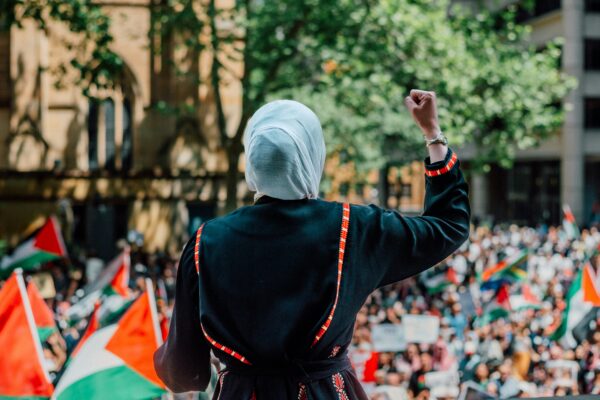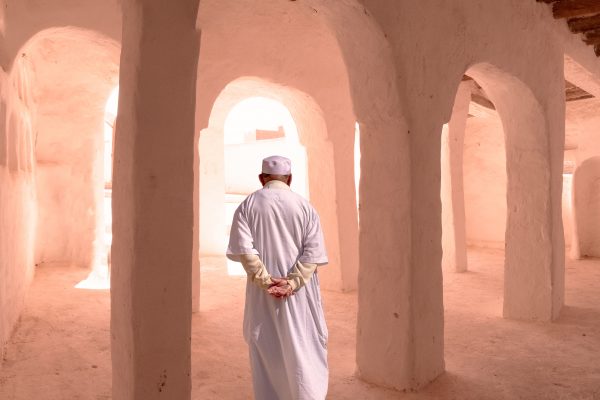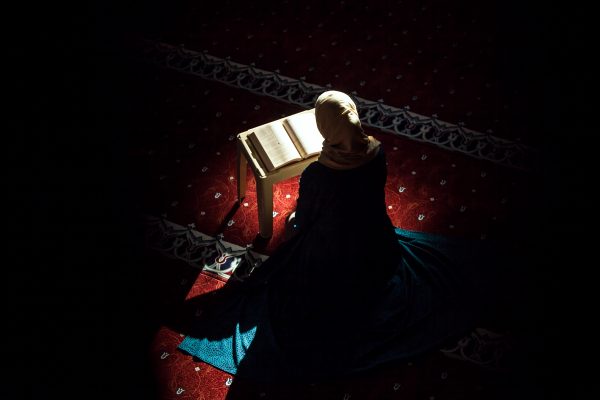Whether it is extremism, immigration, integration, or crime, Muslims are usually at the centre of discussion in Europe.
Whether it is extremism, immigration, integration, or crime, Muslims are usually at the centre of discussion in Europe.
Whether it is extremism, immigration, integration, or crime, Muslims are usually at the centre of discussion in Europe. Post 7/7 Britain is no exception, with Islam and Muslims appearing in headlines almost daily and the focus on particularly young Muslims for mostly negative reasons continues unabated.
Despite Britain being considerably better at integrating their Muslim communities compared to its European neighbours, public scrutiny on them has become a normal part of life. In British Muslims: New Directions in Islamic Thought, Creativity and Activism, Philip Lewis and Sadek Hamid have made painstaking efforts to analyse the complexity and impact of these dynamics on these exceptionally diverse Muslim communities as they craft their place in Britain. Both writers have written extensively on Islam and possess both academic and practitioner knowledge of Muslim communities.
The authors have pulled no punches in discussing sensitive issues within the context of the 21st century multi-faith Britain. They have highlighted the fact that British Muslims constitute the microcosm of the global Muslim ummah with numerous ethnicities and languages as well as religious and cultural traditions that believe the idea of a monolithic Muslim community. Most live in deprived inner city conurbations with a higher proportion of youth in their midst; around half are UK-born and more than two-thirds have their roots in South Asia.
Philip Lewis and Sadek Hamid highlight the changing nature of British Muslims in recent decades, their educational progress, cultural gaps due to intergenerational shifts, disproportionate prison populations, or engagement with the wider society are still fluid. They have been facing challenges, but their success in some sectors of life such as charity, health, business, and entrepreneurship is significant. The authors have ably, and with some empathy, discussed the emerging trends within the communities – occasionally bringing in religious or theological points of view but without being explicitly judgmental.
A book of this nature, especially after 7/7, cannot ignore discussing topical issues such as Muslim leadership, radicalisation, and extremism or youth lifestyles. The topics in the book are wide-ranging with some very topical themes such as women in the mosques; public life and youth activism; changing lifestyles from the perspectives of varying Islamic traditions have been highlighted prominently.
Modern Britain has seen cultural trends that are bringing rapid changes in people’s values and lifestyles due to influential external factors such as technology and social media. While organised religions as a whole have taken a back seat in people’s personal and social life, the religion of Islam still has a big influence on the life of its followers particularly in their internal behaviour and external social engagement. To many Muslims, modernity and their faith are not exclusive or inimical. This is another area that confuses many people, including Muslims, with superficial knowledge of Islam.
The presence and representation of women in mosques are now being widely discussed within communities as essential to securing the future of the faith. Mosques are at the heart of not only Muslims religious and spiritual wellbeing, but also of their community life as historically, ‘people’ were always at the heart of the mosques. The first individual who embraced Islam was Prophet Muhammad’s (peace and blessings be upon him) own beloved wife and the first martyr was one of his prominent woman companions in Makkah. In the Prophet’s mosque in Madinah women used to pray in the same hall behind men’s rows without having any physical barrier between them.
The authors have highlighted the changing dynamics of British Muslim communities, particularly the younger generations, and examined good practices and innovative projects. This focus, particularly on the younger generations, strikes a special chord with me, as I have been working on this for over three decades. Young people, wherever they come from, are an asset of any society. However, they are generally driven by idealism and impatience in their passion to bring swift results. This will only happen if done within the core principles and universal but inclusive teachings of Islam.
Continuous renewal of Islam and reform of the Muslim society has always been at the heart of Islam’s teachings. Scholars and social leaders since the early days of Islam have been advocating for this rejuvenation and advancement. British Muslims cannot be an exception, especially in an intellectually rigorous and socially challenging environment. They are still going through the teething problems and the slow progress may be frustrating to the younger generations, but the signs of positive change are in sight.
In writing this book, the authors have taken a significant step forward along this path. Readers will gain an understanding of how the Muslim community, particularly its younger section, is going through an internal introspection and trying to navigate its way into mainstreaming its presence in Britain.
Dr. Muhammad Abdul Bari is educationalist, parenting consultant, and writer. He is the author of A Long Jihad: My Quest for the Middle Way.












